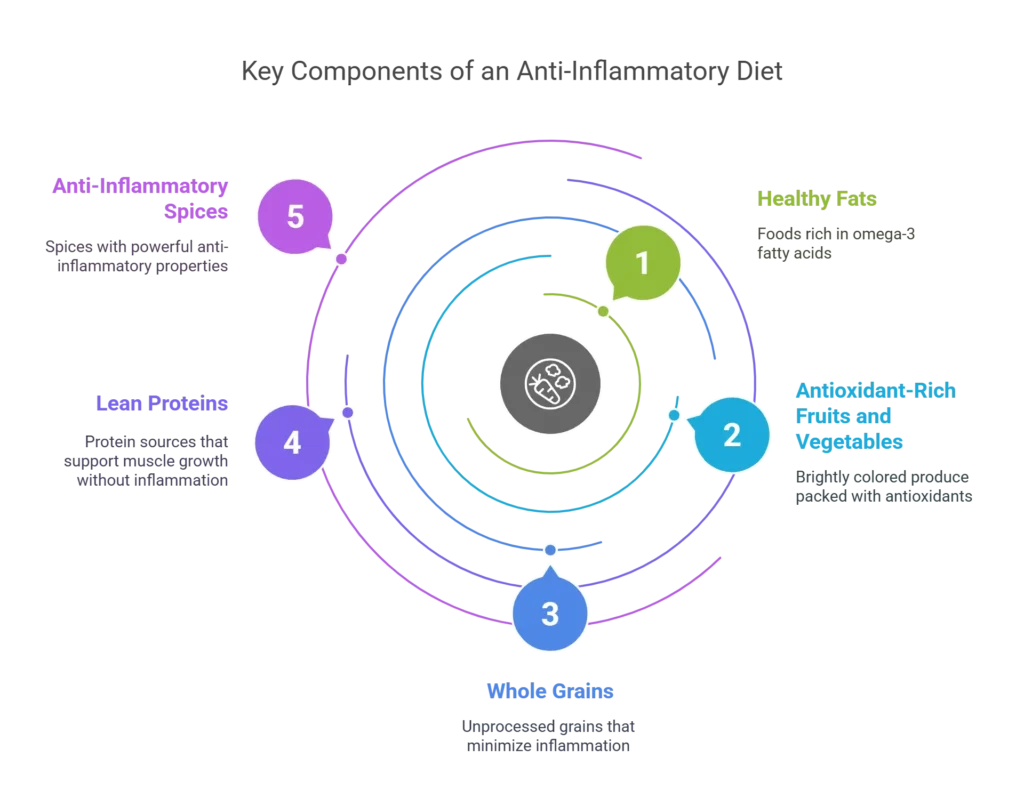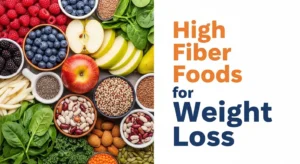Harnessing the Anti-Inflammatory Power of Your Diet for Weight Loss
Unlock the Anti-Inflammatory Secrets of Your Diet for Weight Loss
The connection between inflammation and weight gain is a well-established scientific fact. Chronic inflammation can disrupt metabolism, increase insulin resistance, and contribute to stubborn belly fat.
Fortunately, adopting an anti inflammatory diet for weight loss offers a natural and effective way to combat these issues. By making strategic food choices, you can reduce inflammation, support fat loss, and enhance your overall well-being.
Embrace the Anti-Inflammatory Superstars
Certain foods are renowned for their potent anti-inflammatory properties. these into your daily meals can be a game-changer for your weight loss journey. Some top anti-inflammatory picks include:
- Fatty Fish: Salmon, mackerel, and sardines are rich in omega-3 fatty acids, which have been shown to reduce inflammation and promote fat burning.
- Leafy Greens: Spinach, kale, and collard greens are packed with antioxidants and fiber, both of which help fight inflammation and support healthy digestion.
- Turmeric: This vibrant spice contains the compound curcumin, a powerful anti-inflammatory agent that can also enhance weight loss efforts.
- Berries: Blueberries, raspberries, and strawberries are bursting with anthocyanins, which have been linked to reduced inflammation and improved insulin sensitivity.

Avoid Inflammatory Triggers
Just as important as including anti-inflammatory foods in your diet is minimizing exposure to ingredients that can promote inflammation. Some common culprits to be mindful of include:
- Refined Carbohydrates: White bread, pastries, and sugary snacks can trigger spikes in blood sugar and insulin, leading to inflammation and weight gain.
- Processed Meats: Bacon, sausage, and deli meats often contain preservatives and additives that can contribute to inflammation.
- Fried Foods: The unhealthy fats used in frying can increase inflammation and promote weight gain.
- Alcohol: Excessive alcohol consumption can contribute to inflammation and disrupt weight loss efforts.
Meal Planning for Anti-Inflammatory Success
Crafting an anti-inflammatory diet for weight loss doesn't have to be complicated. By focusing on wholesome, nutrient-dense foods and limiting processed items, you can create delicious and satisfying meals that work to reduce inflammation and support your weight loss goals.
Here are some tips to get you started:
- Build Balanced Plates: Ensure that each meal includes a serving of lean protein, complex carbohydrates, and a variety of anti-inflammatory vegetables and healthy fats.
- Incorporate Spices and Herbs: Season your dishes with inflammation-fighting spices like ginger, garlic, and cayenne pepper to add flavor and health benefits.
- Hydrate Wisely: Drink plenty of water throughout the day and opt for anti-inflammatory beverages like green tea and herbal teas.
- Prepare Meals at Home: Cooking your meals allows you to have greater control over the ingredients and preparation methods, ensuring your diet remains anti-inflammatory.
Harness the Power of an Anti-Inflammatory Lifestyle
While diet plays a crucial role in reducing inflammation and supporting weight loss, it's important to consider other lifestyle factors as well. Regular exercise, stress management, and quality sleep can all contribute to lowering inflammation and optimizing your body's fat-burning potential.
Embrace the anti-inflammatory power of your diet, and unlock the secrets to sustainable weight loss and improved overall health. By making mindful choices and incorporating a variety of anti-inflammatory superfoods, you can transform your body and your well-being from the inside out.
Activating Your Body's Natural Defenses Against Inflammation to Shed Excess Pounds
Harnessing the Power of an Anti-Inflammatory Diet for Sustainable Weight Loss
Inflammation is a natural response of the body to various stimuli, such as injury, infection, or exposure to harmful substances. Chronic inflammation harms health and promotes weight gain;
however, an anti-inflammatory diet can reduce swelling and aid natural weight loss. While chronic inflammation triggers weight issues, an anti-inflammatory diet both lowers inflammation and boosts your body's fat-burning ability.
The Link Between Inflammation and Weight Gain
Chronic inflammation is often associated with the development of insulin resistance, a condition where the body becomes less responsive to the hormone insulin. This can lead to imbalances in blood sugar levels, increased fat storage, and difficulty losing weight.
Additionally, inflammation can trigger the release of hormones that promote hunger and cravings, making it harder to maintain a calorie-controlled diet.
The Anti-Inflammatory Diet: A Holistic Approach
Although it involves avoiding certain foods, an anti-inflammatory diet also emphasizes adding nutrient-rich, inflammation-fighting whole foods. As a result, filling your plate with these options reduces inflammation and naturally supports your body’s weight-loss process.
Key Components of an Anti-Inflammatory Diet
- Healthy Fats: Incorporate foods rich in omega-3 fatty acids, such as fatty fish, chia seeds, and walnuts. These healthy fats have been shown to possess potent anti-inflammatory effects.
- Antioxidant-Rich Fruits and Vegetables: Aim to consume a wide variety of brightly colored fruits and vegetables, which are packed with antioxidants and phytonutrients that can help combat inflammation.
- Whole Grains: Choose whole, unprocessed grains like quinoa, brown rice, and whole-wheat bread, which are less likely to trigger inflammatory responses compared to their refined counterparts.
- Lean Proteins: Opt for lean sources of protein, such as chicken, turkey, and legumes, which can provide the building blocks for muscle growth and repair without contributing to inflammation.
- Anti-Inflammatory Spices: Incorporate spices like turmeric, ginger, and garlic, which have been shown to possess powerful anti-inflammatory properties.

Putting the Anti-Inflammatory Diet into Practice
To begin, replace processed foods with nutrient-dense options; meanwhile, create balanced meals using various anti-inflammatory ingredients. Additionally, try new recipes and flavors to keep your meals exciting and your taste buds engaged.
Remember, the key to sustainable weight loss is not just about the numbers on the scale, but also about improving overall health and well-being. By adopting an anti-inflammatory diet, you can support your body's natural defenses, reduce inflammation, and unlock your full weight-loss potential.
Chronic inflammation can be a significant barrier to successful and sustainable weight loss. An anti-inflammatory diet reduces inflammation and boosts weight loss; furthermore, it improves insulin sensitivity for better metabolic health. By eating anti-inflammatory foods like healthy fats and whole grains, you support weight loss while enhancing overall wellness.
Conclusion
The foods you consume have a profound impact on your body's inflammatory response. Processed, high-fat, and sugary items can trigger an inflammatory cascade, leading to water retention, insulin resistance, and a sluggish metabolism. In contrast, a diet rich in whole, nutrient-dense foods can calm inflammation, enhance fat-burning, and support sustainable weight loss.
Leafy greens, berries, and fatty fish fight inflammation with omega-3s and polyphenols, while also improving gut health and insulin sensitivity. Nuts, seeds, and berries reduce oxidative stress; moreover, they boost insulin sensitivity and gut health for sustainable weight management.
Hydration is another essential component of an anti-inflammatory diet for weight loss. Drinking plenty of water can help flush out toxins, reduce water retention, and support overall metabolic function. Drink eight glasses of water daily while including anti-inflammatory options like green tea for better hydration and health.
At the heart of an anti-inflammatory diet for weight loss are antioxidant-rich fruits and vegetables, lean proteins, healthy fats, and fiber-rich complex carbohydrates. These nutrient-dense foods work synergistically to address the root causes of inflammation and support your body's natural weight-regulating mechanisms.








